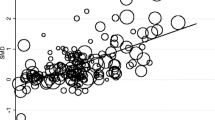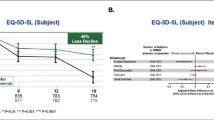Abstract
Objectives
Cognitive frailty — the coexistence of physical frailty and cognitive impairment—is a phenotype of frailty in the elderly. The coexistence of physical frailty and cognitive impairment, known as cognitive frailty, is one of the phenotypes of frailty in the elderly. Cognitive frailty predicts adverse health outcome more accurately than does physical frailty. In this study, we aim to determine whether the polypharmacy common among the elderly is linked with cognitive frailty.
Design, Setting, and Participants
The elderly, aged between 70 and 84 years, who participated in the cross-sectional Korean Frailty and Aging Cohort Study were included in the present study.
Measurements
Polypharmacy and hyperpolypharmacy were defined as the use of at least five and ten medications, respectively. Physical frailty was assessed by the Korean version of the FRAIL scale, and cognitive status was measured by the Trail Making Test part A, word list recall test, the Korean version of the Frontal Assessment Battery, and the Digit Span Backward test.
Results
Among the 2,392 participants, 26.8% and 4.1% took more than five and ten prescribed medications, respectively. Polypharmacy and hyperpolypharmacy participants tend to have more cognitive impairment and physical frailty. Participants with cognitive frailty had the highest polypharmacy rate regardless of medication type. After controlling for the potential confounders including severity of comorbidities, frailty was found to be significantly related to polypharmacy, as defined by prescribed as well as total medications, including non-prescribed medications. However, cognitive impairment only showed a linkage to polypharmacy of prescribed medications, which—according to the results of multivariable analysis— could increase cognitive frailty, with an odds ratio of 2.70.
Conclusion
Although the elderly tend to depend on various medications, they should seriously consider the risk of polypharmacy for better health outcomes.


Similar content being viewed by others
References
Hartikainen S, Lonnroos E, Louhivuori K. Medication as a risk factor for falls: Critical systematic review. J Gerontol A Biol Sci Med Sci 2007;62(10): 1172–1181.
Rosso AL, Eaton CB, Wallace R et al. Geriatric syndromes and incident disability in older women: Results from the Women’s Health Initiative Observational Study. J Am Geriatr Soc 2013;61:371–379.
Kojima T. The need for actions against polypharmacy in older people with frailty. Ann Geriatr Med Res 2018;22:111–116
Fried LP, Tangen CM, Waltson J et al Cardiovascular Health Study Collaborative Research Group. Frailty in older adults: Evidence for a phenotype. J Gerontol A Biol Sci Med Sci 2001;56: M146–M156.
Armstrong JJ, Stolee P, Hirdes JP et al. Examining three frailty conceptualizations in their ability to predict negative outcomes for home-care clients. Age Ageing 2010;39:755e758.
Jacobs JM, Cohen A, Ein-Mor E et al. Frailty, cognitive impairment and mortality among the oldest old. J Nutr Health Aging 2011;15:678e682.
Houles M, Canevelli M, Abellan van Kan G et al. Frailty and cognition. J Frailty Aging 2012;1(2): 56–63.
Morley JE. Nutrition and the brain. Clin Geriatr Med 2010;26 (1): 89–98.
Kelaiditi E, Cesari M, Canevelli M et al. Cognitive frailty: Rational and definition from an (IANA/IAGG) international consensus group. J Nutr Health Aging 2013;17: 726–734.
Feng L, Nyunt MSZ, Gao Q et al. Physical frailty, cognitive impairment, and the risk of neurocognitive disorder in the Singapore longitudinal ageing studies. J. Gerontol Ser A Biol Sci Med Sci 2017;72: 369–395.
Avila-Funes JA, Amieva H, Barberger-Gateau P et al. Cognitive impairment improves the predictive validity of the phenotype of frailty for adverse health outcomes: The three-city study. J Am Geriatr Soc 2009;57(3): 453–461.
Gray SL, Anderson ML, Hubbard RA et al. Frailty and incident dementia. J Gerontol A Biol Sci Med Sci 2013;68(9): 1083–1090.
Roppolo M, Mulasso A, Rabaglietti E. Cognitive frailty in Italian community-dwelling older adults: Prevalence rate and its association with disability. J Nutr Health Aging 2017;21(6):631–636.
Lee WJ, Peng LN, Liang CK et al. Cognitive frailty predicting all-cause mortality among community-living older adults in Taiwan: A 4-year nationwide population-based cohort study. PLoS One 2018;13(7):e0200447.
Kim J, Lee Y, Won CW, et al. Nutritional status and frailty in community-dwelling older Korean adults: The Korean Frailty and Aging Cohort Study. J Nutr Health Aging 2018;22(7):774–778.
Gnjidic D, Hilmer SN, Blyth FM, et al. Polypharmacy cutoff and outcomes: Five or more medicines were used to identify community-dwelling older men at risk of different adverse outcomes. J Clin Epidemiol 2012;65(9):989–995.
Gnjidic D, Hilmer SN, Blyth FM, et al. High-risk prescribing and incidence of frailty among older community-dwelling men. Clin Pharmacol Ther 2012;91(3):521–528.
Morley JE, Malmstrom TK, Miller DK. A simple frailty questionnaire (FRAIL) predicts outcomes in middle aged African Americans. J Nutr Health Aging 2012;16:601–608.
Jung HW, Yoo HJ, Park SY et al. The Korean version of the FRAIL scale: Clinical feasibility and validity of assessing the frailty status of Korean elderly. Korean J Intern Med 2016;31(3):594.
Lim SK, Lee SY, Beom J et al. Comparative outcomes of inpatient fragility fracture intensive rehabilitation management (FIRM) after hip fracture in sarcopenic and non-sarcopenic patients: A prospective observational study. Eur Geriatr Med 2018;9(5):641–650.
Son YJ, Shim D, Seo E. Health literacy but not frailty predict self-care behaviors in patients with heart failure. Int J Environ Res Public Health 2018;15(11):2474
Lee JH, Lee KU, Lee DY et al. Development of the Korean version of the consortium to establish a registry for Alzheimer’s disease assessment packet (CERAD-K): Clinical and neuropsychological assessment batteries. J Gerontol Ser B Psychol Sci Soc Sci 2002;57: P47–P53.
Lee DY, Lee KU, Lee JH et al. A normative study of the CERAD neuropsychological assessment battery in the Korean elderly. J Int Neuropsychol Soc 2004;10: 72–81.
Kim TH, Huh Y, Choe JY, et al. Korean version of frontal assessment battery: Psychometric properties and normative data. Dement Geriatr Cognit Disord 2010;29: 363–370.
Choi HJ, Lee DY, Seo EH et al. A normative study of the digit span in an educationally diverse elderly population. Psychiatry Investig 2014;11(1): 39.
Won CW, Lee Y, Kim S, et al. Modified criteria for diagnosing “cognitive frailty”. Psychiatry Investig 2018;15: 839–842.
Charlson ME, Pompei P, Ales KL, et al. A new method of classifying prognostic comorbidity in longitu¬dinal studies: Development and validation. J Chronic Dis 1987;40: 373–383.
Nestlé Nutrition Institute. Mini Nutritional Assessment (MNA). https://doi.org/www.mna-elderly.com/mna_forms.html. Accessed 06 June 2017.
Bae JN, Cho MJ. Development of the Korean version of the Geriatric Depression Scale and its short form among elderly psychiatric patients. J Psychosom Res 2004;57:297–305.
Chen LK, Liu LK, Woo J et al. Sarcopenia in Asia: Consensus report of the Asian working group for sarcopenia. J Am Med Dir Assoc 2014;15: 95–101.
Podsiadlo D, Richardson S. The timed “Up & Go”: A test of basic functional mobility for frail elderly persons. J Am Geriatr Soc 1991;39: 142–148.
Son JH, Kim SY, Won CW et al. Physical frailty predicts medical expenses in community-dwelling, elderly patients: Three-year prospective findings from living profiles of older people surveys in Korea. Eur Geriatr Med 2015;6: 412–416
Niikawa H, Okamura T, Ito K et al. Association between polypharmacy and cognitive impairment in an elderly Japanese population residing in an urban community. Geriatr Gerontol Int 2017;17(9):1286–1293.
Alzner R, Bauer U, Pitzer S et al. Polypharmacy, potentially inappropriate medication and cognitive status in Austrian nursing home residents: results from the OSiA study. Wiener medizinische Wochenschrift 2016;166(5–6):161–165.
Lai SW, Lin CH, Liao KF et al. Association between polypharmacy and dementia in older people: A population-based case-control study in Taiwan. Geriatr Gerontol Int 2012;12(3):491–498.
Saum KU, Schöttker B, Meid AD et al. Is polypharmacy associated with frailty in older people? Results from the ESTHER cohort study. J Am Geriatr Soc 2017;65(2): e27–32.
Jamsen KM, Bell JS, Hilmer SN et al. Effects of changes in number of medications and drug burden index exposure on transitions between frailty states and death: The concord health and ageing in men project cohort study. J Am Geriatr Soc 2016;64: 89–95.
Shimada H, Makizako H, Lee S et al. Impact of cognitive frailty on daily activities in older persons. J Nutr Health Aging 2016;20(7):729–735.
Xu G, Meyer JS, Thornby J et al. Screening for mild cognitive impairment (MCI) utilizing combined mini-mental-cognitive capacity examinations for identifying dementia prodromes. Int J Geriatr Psychiatry 2002;17:1027–1033.
Dent E, Lien C, Lim WS et al. The Asia-Pacific clinical practice guidelines for the management of frailty. J Am Med Dir Assoc 2017;18(7):564–575.
Kim KJ, Shin J, Choi J. Discrepancies in the prevalence of known frailty scales: Korean Frailty and Aging Cohort Study. Ann Geriatr Med Res 2018;22(3):137–144.
Malmstrom TK, Miller DK, Morley JE. A comparison of four frailty models. J Am Geriatr Soc 2014;62: 721–726.
Acknowledgements
This research was supported by a grant of the Korea Health Technology R&D Project through the Korean Health Industry Development Institute (KHIDI), funded by the Ministry of Health and Welfare, Republic of Korea (grant number: HI15C3153).
Author information
Authors and Affiliations
Corresponding authors
Ethics declarations
Conflicts of Interest: The authors declare no conflict of interest.
Ethical standards: This study was approved by the Institutional Review Board of Jeju University Hospital (approval number: JEJUNUH 2016-03-008) and complied with the tenets of the Declaration of Helsinki.
Rights and permissions
About this article
Cite this article
Moon, J.H., Huh, J.S., Won, C.W. et al. Is Polypharmacy Associated with Cognitive Frailty in the Elderly? Results from the Korean Frailty and Aging Cohort Study. J Nutr Health Aging 23, 958–965 (2019). https://doi.org/10.1007/s12603-019-1274-y
Received:
Accepted:
Published:
Issue Date:
DOI: https://doi.org/10.1007/s12603-019-1274-y




